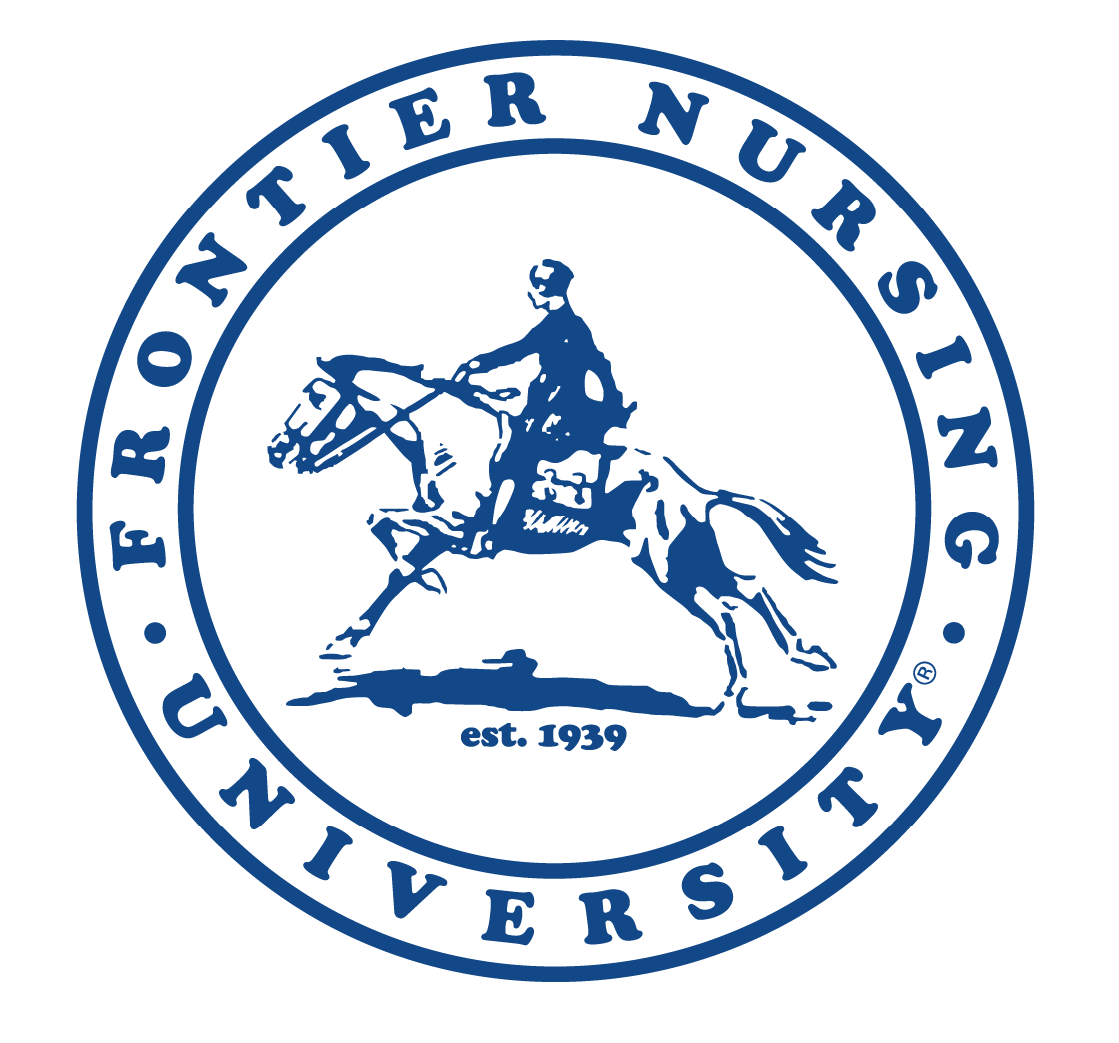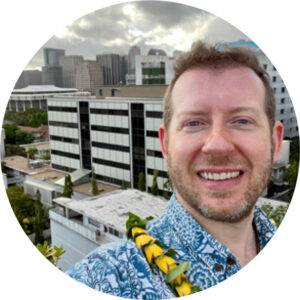
Bradley Kuo, DNP (Class 33), M.Ed., APRN, FNP-BC, PMHNP-BC, CARN-NP
Ever since he graduated high school a year early, Bradley Kuo, DNP (Class 33), M.Ed., APRN, FNP-BC, PMHNP-BC, CARN- NP, has made being ahead of schedule the norm. He completed an accelerated master of nursing program at the University of Hawaii at Manoa and completed his DNP at Frontier Nursing University while working five jobs. He even started his mental telehealth practice – the first based in Hawaii – in 2018, two years before the pandemic drove other practices to start offering telehealth.
The reality is that Kuo hasn’t rushed through anything. Rather, he was making up for lost time after completing his undergraduate studies at St. Olaf College in Northfield, Minnesota, as a music major intending to become a high school choir director. He then earned a master’s of education in counseling with an emphasis in student affairs at Northern Arizona. A healthcare career was not yet on the horizon.
Kuo worked in higher education administration for several years with stops at Cal Poly Pomona, UC Berkeley, and finally, the University of Hawaii at Manoa, where he worked for three years.
“That last year, I started to complete the prerequisites to get into the master’s entry program in nursing at UH,” said Kuo, who grew up in Wisconsin and spent one year in Germany as a foreign exchange student. “In 2010, I did my pre-licensure year. What nurses would typically do in three years of education, I and my cohort had to get it done in one. It was very intense. As soon as we were done, we had to go right into the graduate program. After all that, I did graduate with a BSN and an MSN as an FNP and an advanced public health nurse. Over the course of those several years in the graduate program, I worked in long-term care and hospice. I really enjoyed that because it shapes how I have conversations with my patients now.”
Kuo and his husband, Erik, now own and operate Wellness Partners Hawaii, Inc., an online telemental health clinic. Wellness Partners Hawaii opened in 2018. In 2019, Kuo enrolled in the DNP program at Frontier. By then, he had a wealth of experience in nursing, including being a nurse practitioner for hospice, working in a pediatrics clinic, and working with the Honolulu Police Department in corrections as an independent contractor. Then, he began working at Queens Medical Center in Honolulu, Hawaii. In 2015, he enrolled at Johns Hopkins and earned his postgraduate certificate for psychiatric-mental health.
“While I was working at Queens, the thing about getting that DNP kept on nagging me,” Kuo said. “That’s when I decided it was time in 2019 to do the Frontier Nursing DNP program.”
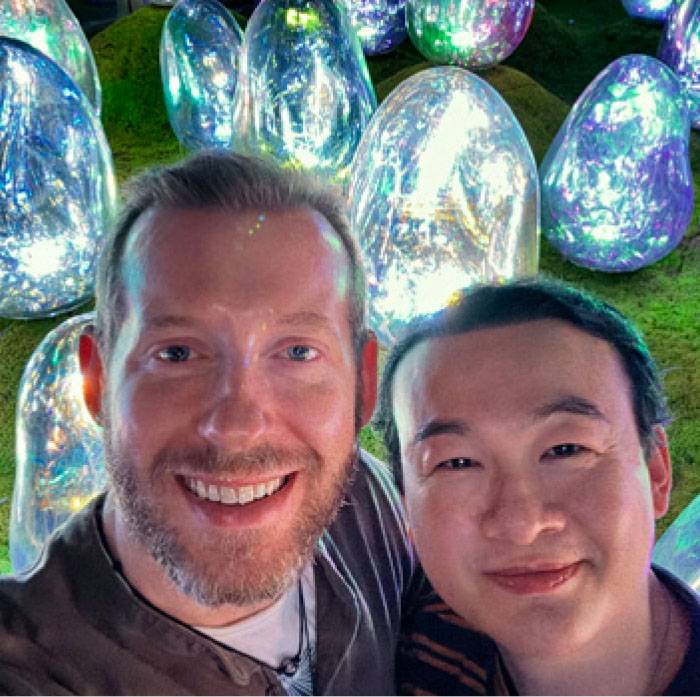
Bradley (left) and his husband Erik
He approached the DNP the same way he had the rest of his academic and professional career, taking on multiple projects simultaneously.
“I needed a program that would allow me some flexibility because I was working full-time at the hospital,” Kuo said. “I was literally working five jobs while I was getting my DNP: Full time at the hospital, running my mental health business, my husband and I started a medical spa, I was working for the police department, and I held a couple of other smaller jobs. I was really busy while at the same time doing the work for the DNP. I decided I was going to torture myself and really stack up the classes. I did get my DNP done rather quickly, but it was intense. My faculty mentor, Ana Verzone (DNP, FNP, CNM, PMHNP), was amazing. She was instrumental in helping me move through my program.”
Even with his businesses and career already flourishing, Kuo believed in the value of the DNP. His experiences since then have validated his beliefs. Kuo has become an active leader in local and state healthcare policies, serving on a seemingly endless list of boards and committees.
“One of the things the DNP helped me achieve is that I am able to be a part of a lot more leadership roles,” Kuo said. “I am able to be a part of a lot more initiatives, and that is because of my completion of that degree. My ability to take on leadership roles has been a big piece of my work since I finished my degree at Frontier. People pointed at me, saying, “Well, you’ve got your DNP; you can manage this.” Other leadership roles were something that was asked of me. It also helped to get the attention of legislators. Using my academic title is important at times so that I can be heard in the work that we are doing.”
Kuo has served as the chair of the legislative committee for the Hawaii Association of Professional Nurses. Last year, he was selected by the governor for an interim appointment as the APRN representative for the Hawaii State Board of Nursing until the Senate is able to solidify that appointment during the next legislative session. Kuo is also the Chair of the Board of Directors for Mental Health Kokua, a non-profit organization founded in 1973 to assist those dealing with mental illness. He is the Hawaii liaison for the American Association of Nurse Practitioners and is on the Board of Directors for the National Alliance on Mental Illness-Hawaii.
“As APRNs and nurses, we actually have to take our seat at the table. We can’t wait for somebody to offer it to us,” Kuo said. “What that might look like is we might submit legislative testimony. That’s how we can take our seats. We can be very involved from a legislative perspective. If we wait for somebody to give us a seat at the table, it’s going to take a long time. I think there are ways to take our seat at the table that are not overbearing but can support the organizations’ or the state’s mission to move the healthcare needs forward.”
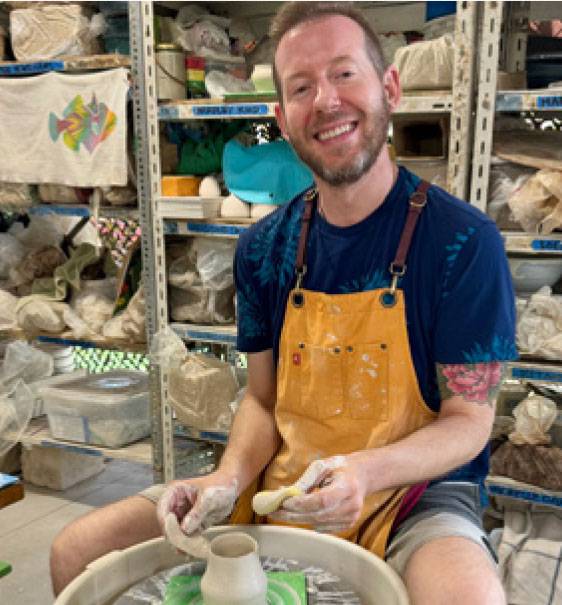 Much of Kuo’s committee work involves ensuring that APRNs are working within their scope of education, certification, and licensure. This, he says, ultimately leads to a better overall healthcare system.
Much of Kuo’s committee work involves ensuring that APRNs are working within their scope of education, certification, and licensure. This, he says, ultimately leads to a better overall healthcare system.
“In the work that I do politically, it really is improving access to care for the people of Hawaii,” Kuo said. “If we’re not working outside of our scope, certain organizations in the country and this state have less of an argument to make when suggesting that we’re not properly trained and educated. Then we’re in a much better spot in being able to advocate for the patient care we are able to deliver. For that reason, the state of Hawaii put together the APRN Scope of Practice Algorithm to ensure APRNs can ask themselves if they are working within that scope. If the answer is no, they need to course correct.”
Other legislative issues that Kuo has addressed include financial concerns, such as increasing state-funded loan reimbursement and preceptor tax credits.
“Pay parity is a very difficult problem here,” Kuo said. “Hawaii is one of the lowest reimbursing states for care. I am envious of my colleagues in other states who get more money for the work that they do. The medicare reimbursement doesn’t meet what is needed to provide care here. I am part of a couple of groups that are working to lobby federal legislators to increase medicare reimbursement. Typically, an APRN throughout the country gets reimbursed 85% of what a physician does. We are already operating at a deficit in a state that makes it difficult for APRN-run and physician-run clinics to operate financially.”
Fortunately, Kuo’s Wellness Partners Hawaii is succeeding. The practice now includes 17 therapists and five subscribers and averages more than 100 new patients per month and 98 percent of all care is conducted via telehealth. Common presentations include PTSD, depression, anxiety, ADHD, trauma, and issues related to substance use. The only time in-person appointments are conducted is to meet DEA requirements to start a controlled substance.
“We have been focused on reaching the communities that have less access to care,” Kuo said. “We thought the best way for us to improve access to care is to use technology. We’ve been doing telehealth before it was even popular. During the pandemic, when everyone was trying to pivot how they deliver health care, we were already there.”
While Kuo has found the value in telehealth, he is no stranger to in-person mental health care. His interest in mental healthcare developed when he worked in student affairs at the University of Hawaii at Manoa. He found that helping first-year college students involved a significant mental health aspect.
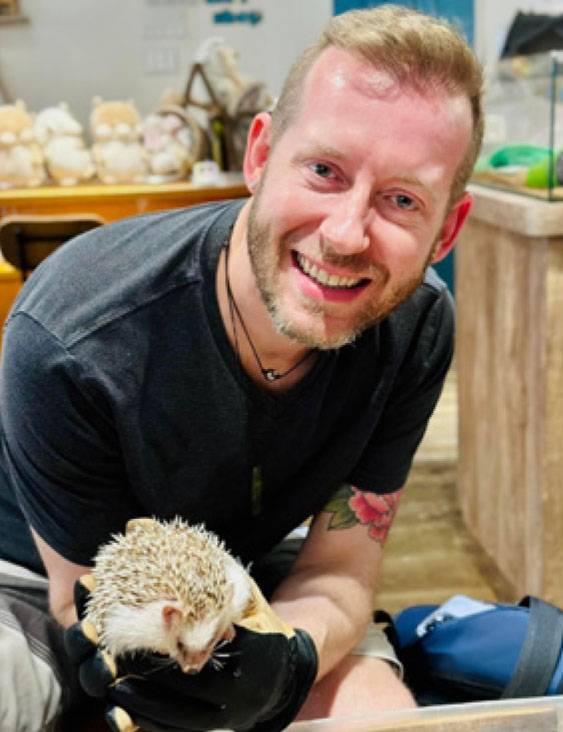 “As I became more involved in the mental health world, I needed to make sure I had the education and training to back that up,” Kuo said. “That’s when I decided to go back to Johns Hopkins. Once I was done with that program, then my work in mental healthcare catapulted. I worked on ways to improve mental healthcare in the workplaces that I was in. I just grew to embrace mental healthcare.”
“As I became more involved in the mental health world, I needed to make sure I had the education and training to back that up,” Kuo said. “That’s when I decided to go back to Johns Hopkins. Once I was done with that program, then my work in mental healthcare catapulted. I worked on ways to improve mental healthcare in the workplaces that I was in. I just grew to embrace mental healthcare.”
While fully invested in the care of his patients, his staff, and his legislative work, Kuo does so with an eye toward the future, where he hopes to see greater access to care for all Hawaii residents.
“We’re constantly working to improve access to care,” Kuo said. “Nurses and APRNs are trained differently, so how we deliver that care may be improved for certain members of the population. As we continue to evolve here in the state, I think nurses and nurse practitioners can have an even greater seat at the table.”









 Carrie Belin is an experienced board-certified Family Nurse Practitioner and a graduate of the Johns Hopkins DNP program, Johns Hopkins Bloomberg School of Public Health, Georgetown University School of Nursing, and Johns Hopkins School of Nursing. She has also completed fellowships at Georgetown and the University of California Irvine.
Carrie Belin is an experienced board-certified Family Nurse Practitioner and a graduate of the Johns Hopkins DNP program, Johns Hopkins Bloomberg School of Public Health, Georgetown University School of Nursing, and Johns Hopkins School of Nursing. She has also completed fellowships at Georgetown and the University of California Irvine.












 Angie has been a full-scope midwife since 2009. She has experience in various birth settings including home, hospital, and birth centers. She is committed to integrating the midwifery model of care in the US. She completed her master’s degree in nurse-midwifery at Frontier Nursing University (FNU) and her Doctorate at Johns Hopkins University. She currently serves as the midwifery clinical faculty at FNU. Angie is motivated by the desire to improve the quality of healthcare and has led quality improvement projects on skin-to-skin implementation, labor induction, and improving transfer of care practices between hospital and community midwives. In 2017, she created a short film on skin-to-skin called
Angie has been a full-scope midwife since 2009. She has experience in various birth settings including home, hospital, and birth centers. She is committed to integrating the midwifery model of care in the US. She completed her master’s degree in nurse-midwifery at Frontier Nursing University (FNU) and her Doctorate at Johns Hopkins University. She currently serves as the midwifery clinical faculty at FNU. Angie is motivated by the desire to improve the quality of healthcare and has led quality improvement projects on skin-to-skin implementation, labor induction, and improving transfer of care practices between hospital and community midwives. In 2017, she created a short film on skin-to-skin called 

 Justin C. Daily, BSN, RN, has ten years of experience in nursing. At the start of his nursing career, Justin worked as a floor nurse on the oncology floor at St. Francis. He then spent two years as the Director of Nursing in a small rural Kansas hospital before returning to St. Francis and the oncology unit. He has been in his current position as the Chemo Nurse Educator for the past four years. He earned an Associate in Nurse from Hutchinson Community College and a Bachelor of Science in Nursing from Bethel College.
Justin C. Daily, BSN, RN, has ten years of experience in nursing. At the start of his nursing career, Justin worked as a floor nurse on the oncology floor at St. Francis. He then spent two years as the Director of Nursing in a small rural Kansas hospital before returning to St. Francis and the oncology unit. He has been in his current position as the Chemo Nurse Educator for the past four years. He earned an Associate in Nurse from Hutchinson Community College and a Bachelor of Science in Nursing from Bethel College. Brandy Jackson serves as the Director of Undergraduate Nursing Programs and Assistant Educator at Wichita State University and Co-Director of Access in Nursing. Brandy is a seasoned educator with over 15 years of experience. Before entering academia, Brandy served in Hospital-based leadership and Critical Care Staff nurse roles. Brandy is passionate about equity in nursing education with a focus on individuals with disabilities. Her current research interests include accommodations of nursing students with disabilities in clinical learning environments and breaking down barriers for historically unrepresented individuals to enter the nursing profession. Brandy is also actively engaged in Interprofessional Education development, creating IPE opportunities for faculty and students at Wichita State. Brandy is an active member of Wichita Women for Good and Soroptimist, with the goal to empower women and girls. Brandy is a TeamSTEPPS master trainer. She received the DASIY Award for Extraordinary Nursing Faculty in 2019 at Wichita State University.
Brandy Jackson serves as the Director of Undergraduate Nursing Programs and Assistant Educator at Wichita State University and Co-Director of Access in Nursing. Brandy is a seasoned educator with over 15 years of experience. Before entering academia, Brandy served in Hospital-based leadership and Critical Care Staff nurse roles. Brandy is passionate about equity in nursing education with a focus on individuals with disabilities. Her current research interests include accommodations of nursing students with disabilities in clinical learning environments and breaking down barriers for historically unrepresented individuals to enter the nursing profession. Brandy is also actively engaged in Interprofessional Education development, creating IPE opportunities for faculty and students at Wichita State. Brandy is an active member of Wichita Women for Good and Soroptimist, with the goal to empower women and girls. Brandy is a TeamSTEPPS master trainer. She received the DASIY Award for Extraordinary Nursing Faculty in 2019 at Wichita State University.  Dr. Sabrina Ali Jamal-Eddine is an Arab-disabled queer woman of color with a PhD in Nursing and an interdisciplinary certificate in Disability Ethics from the University of Illinois Chicago (UIC). Dr. Jamal-Eddine’s doctoral research explored spoken word poetry as a form of critical narrative pedagogy to educate nursing students about disability, ableism, and disability justice. Dr. Jamal-Eddine now serves as a Postdoctoral Research Associate in UIC’s Department of Disability and Human Development and serves on the Board of Directors of the National Organization of Nurses with Disabilities (NOND). During her doctoral program, Sabrina served as a Summer Fellow at a residential National Endowment of the Humanities (NEH) Summer Institute at Arizona State University (2023), a summer fellow at Andrew W. Mellon’s National Humanities Without Walls program at University of Michigan (2022), a Summer Research Fellow at UC Berkeley’s Othering & Belonging Institute (2021), and an Illinois Leadership Education in Neurodevelopmental and related Disabilities (LEND) trainee (2019-2020).
Dr. Sabrina Ali Jamal-Eddine is an Arab-disabled queer woman of color with a PhD in Nursing and an interdisciplinary certificate in Disability Ethics from the University of Illinois Chicago (UIC). Dr. Jamal-Eddine’s doctoral research explored spoken word poetry as a form of critical narrative pedagogy to educate nursing students about disability, ableism, and disability justice. Dr. Jamal-Eddine now serves as a Postdoctoral Research Associate in UIC’s Department of Disability and Human Development and serves on the Board of Directors of the National Organization of Nurses with Disabilities (NOND). During her doctoral program, Sabrina served as a Summer Fellow at a residential National Endowment of the Humanities (NEH) Summer Institute at Arizona State University (2023), a summer fellow at Andrew W. Mellon’s National Humanities Without Walls program at University of Michigan (2022), a Summer Research Fellow at UC Berkeley’s Othering & Belonging Institute (2021), and an Illinois Leadership Education in Neurodevelopmental and related Disabilities (LEND) trainee (2019-2020). Vanessa Cameron works for Vanderbilt University Medical Center in Nursing Education & Professional Development. She is also attending George Washington University and progressing towards a PhD in Nursing with an emphasis on ableism in nursing. After becoming disabled in April 2021, Vanessa’s worldview and perspective changed, and a recognition of the ableism present within healthcare and within the culture of nursing was apparent. She has been working since that time to provide educational foundations for nurses about disability and ableism, provide support for fellow disabled nursing colleagues, and advocate for the disabled community within healthcare settings to reduce disparities.
Vanessa Cameron works for Vanderbilt University Medical Center in Nursing Education & Professional Development. She is also attending George Washington University and progressing towards a PhD in Nursing with an emphasis on ableism in nursing. After becoming disabled in April 2021, Vanessa’s worldview and perspective changed, and a recognition of the ableism present within healthcare and within the culture of nursing was apparent. She has been working since that time to provide educational foundations for nurses about disability and ableism, provide support for fellow disabled nursing colleagues, and advocate for the disabled community within healthcare settings to reduce disparities. Dr. Lucinda Canty is a certified nurse-midwife, Associate Professor of Nursing, and Director of the Seedworks Health Equity in Nursing Program at the University of Massachusetts Amherst. She earned a bachelor’s degree in nursing from Columbia University, a master’s degree from Yale University, specializing in nurse-midwifery, and a PhD from the University of Connecticut. Dr. Canty has provided reproductive health care for over 29 years. Her research interests include the prevention of maternal mortality and severe maternal morbidity, reducing racial and ethnic health disparities in reproductive health, promoting diversity in nursing, and eliminating racism in nursing and midwifery.
Dr. Lucinda Canty is a certified nurse-midwife, Associate Professor of Nursing, and Director of the Seedworks Health Equity in Nursing Program at the University of Massachusetts Amherst. She earned a bachelor’s degree in nursing from Columbia University, a master’s degree from Yale University, specializing in nurse-midwifery, and a PhD from the University of Connecticut. Dr. Canty has provided reproductive health care for over 29 years. Her research interests include the prevention of maternal mortality and severe maternal morbidity, reducing racial and ethnic health disparities in reproductive health, promoting diversity in nursing, and eliminating racism in nursing and midwifery. Dr. Lisa Meeks is a distinguished scholar and leader whose unwavering commitment to inclusivity and excellence has significantly influenced the landscape of health professions education and accessibility. She is the founder and executive director of the DocsWithDisabilities Initiative and holds appointments as an Associate Professor in the Departments of Learning Health Sciences and Family Medicine at the University of Michigan.
Dr. Lisa Meeks is a distinguished scholar and leader whose unwavering commitment to inclusivity and excellence has significantly influenced the landscape of health professions education and accessibility. She is the founder and executive director of the DocsWithDisabilities Initiative and holds appointments as an Associate Professor in the Departments of Learning Health Sciences and Family Medicine at the University of Michigan. Dr. Nikia Grayson, DNP, MSN, MPH, MA, CNM, FNP-C, FACNM (she/her) is a trailblazing force in reproductive justice, blending her expertise as a public health activist, anthropologist, and family nurse-midwife to champion the rights and health of underserved communities. Graduating with distinction from Howard University, Nikia holds a bachelor’s degree in communications and a master’s degree in public health. Her academic journey also led her to the University of Memphis, where she earned a master’s in medical anthropology, and the University of Tennessee, where she achieved both a master’s in nursing and a doctorate in nursing practice. Complementing her extensive education, she completed a post-master’s certificate in midwifery at Frontier Nursing University.
Dr. Nikia Grayson, DNP, MSN, MPH, MA, CNM, FNP-C, FACNM (she/her) is a trailblazing force in reproductive justice, blending her expertise as a public health activist, anthropologist, and family nurse-midwife to champion the rights and health of underserved communities. Graduating with distinction from Howard University, Nikia holds a bachelor’s degree in communications and a master’s degree in public health. Her academic journey also led her to the University of Memphis, where she earned a master’s in medical anthropology, and the University of Tennessee, where she achieved both a master’s in nursing and a doctorate in nursing practice. Complementing her extensive education, she completed a post-master’s certificate in midwifery at Frontier Nursing University.









 Dr. Tia Brown McNair is the Vice President in the Office of Diversity, Equity, and Student Success and Executive Director for the Truth, Racial Healing, and Transformation (TRHT) Campus Centers at the American Association of Colleges and Universities (AAC&U) in Washington, DC. She oversees both funded projects and AAC&U’s continuing programs on equity, inclusive excellence, high-impact practices, and student success. McNair directs AAC&U’s Summer Institutes on High-Impact Practices and Student Success, and TRHT Campus Centers and serves as the project director for several AAC&U initiatives, including the development of a TRHT-focused campus climate toolkit. She is the lead author of From Equity Talk to Equity Walk: Expanding Practitioner Knowledge for Racial Justice in Higher Education (January 2020) and Becoming a Student-Ready College: A New Culture of Leadership for Student Success (July 2016 and August 2022 Second edition).
Dr. Tia Brown McNair is the Vice President in the Office of Diversity, Equity, and Student Success and Executive Director for the Truth, Racial Healing, and Transformation (TRHT) Campus Centers at the American Association of Colleges and Universities (AAC&U) in Washington, DC. She oversees both funded projects and AAC&U’s continuing programs on equity, inclusive excellence, high-impact practices, and student success. McNair directs AAC&U’s Summer Institutes on High-Impact Practices and Student Success, and TRHT Campus Centers and serves as the project director for several AAC&U initiatives, including the development of a TRHT-focused campus climate toolkit. She is the lead author of From Equity Talk to Equity Walk: Expanding Practitioner Knowledge for Racial Justice in Higher Education (January 2020) and Becoming a Student-Ready College: A New Culture of Leadership for Student Success (July 2016 and August 2022 Second edition).